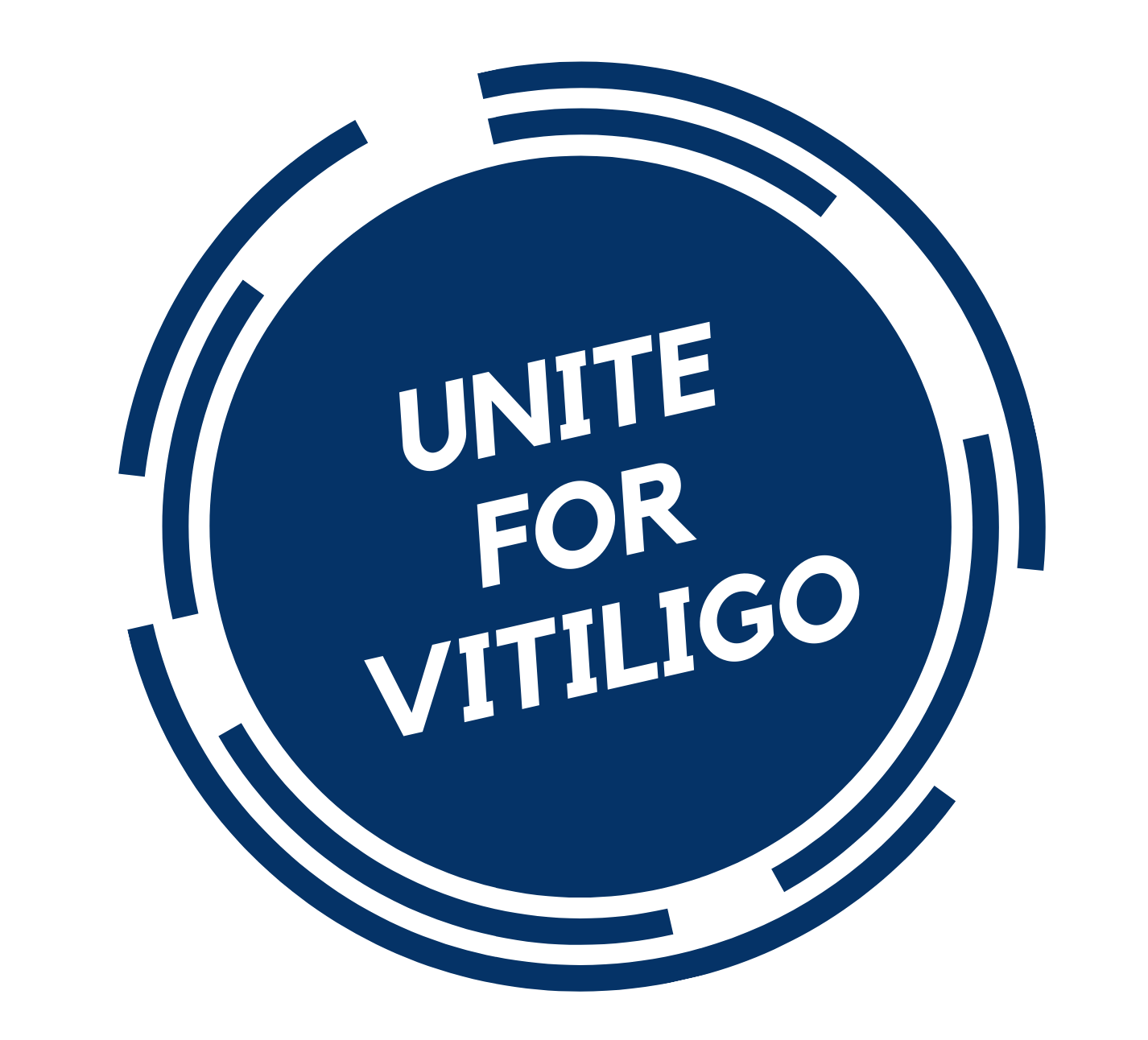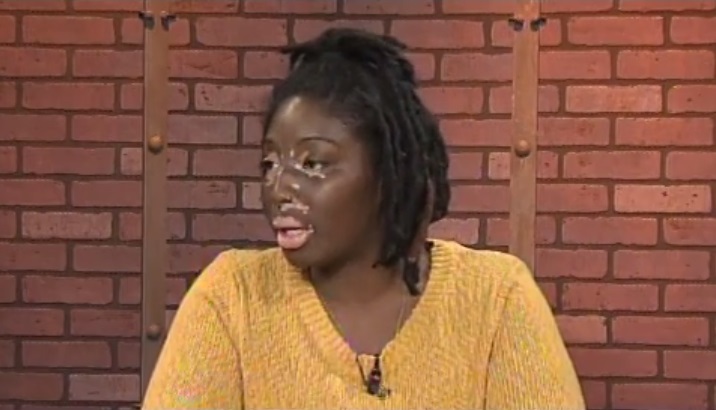All vitiligo fighters had a very special reason to watch the latest episode of Disability Connection, this week. The guest on the show was our favorite Sharon King, the founder of the Litty Ligo. Apart from spearheading this amazing vitiligo support network, Sharon works at the Boston Center for Independent Living (BCIL). She is a long term service and support care coordinator and a community outreach advocacy specialist too.
The vitiligo awareness advocacy champ sat down with Andy Forman to discuss what made her start Litty Ligo and what vitiligo awareness means to her. Always smiling, as usual, a glowing Sharon lit the room with her magical personality. This blog features some of our favorite takeaways from the interview.
Sharon got diagnosed with vitiligo in 1999. She got her first spot right around her eye. She was pretty okay with her vitiligo until she went to take her first school picture with those little spots: “There was a boy who was making fun of me and I just got super sensitive. It was the first time anyone had ever really called attention negatively to my skin,” the Litty Ligo Founder recalls.
Sharon told the show host, Andy, that she grew up with a lot of support from her friends and family. And, as she got older, she got to this place of acceptance where she’s okay. In fact, she has an interesting way of describing vitiligo to kids: “I don’t mind explaining it and if it’s a younger kid, I explain it as if my body is like a star system and my autoimmune system is the galaxy protectors and sometimes they get confused and destroy the wrong things and that’s why my skin is like that. Or, if they’re older I tell them the truth that it’s vitiligo, my melanin is gone in these places.”
“You founded this group? Why did you found it? I mean, obviously, you saw a need because people couldn’t deal with it, didn’t have the support you do, or did,” Andy asked. Sharon started out with recalling an incident, “In 2017, I went to Sephora to get a new line of makeup. An older African American woman came over to help me, even though I didn’t need help. She gave me the wrong shade and insisted on trying the makeup on my face. She tried to cover my spots. And, I’m explaining to her why I don’t cover it up. I’m showing her pictures of me with it covered up at times and she’s telling me that I look better with it covered up and then at the end of the conversation, she goes, “oh yeah, what’s it called again? Leprosy?” I was so taken aback by the experience. I didn’t really process it till I got back into the car. I think that’s when I started putting Litty Ligo together ’cause that shouldn’t happen to anybody.”
Sharon started going into Facebook groups and seeing what kind of support was out there. She got in contact with some great vitiligo support groups like VITFriends, V Strong, and the Houston Vitiligo Awareness Movement. And, she started her own kind of social awareness program.
Before watching this interview, we didn’t have any idea that Litty Ligo is this insightful as well as fun. “I have this event that I have called, ‘Speak Easy’ where I have a panel of at least one person who is living with vitiligo, a mental or social health specialist, and two other people that are either experts or people that can attest to whatever the topic is. We also have a page called ‘We Are Art’, for people who make art that’s inspired by vitiligo. And, we also run some campaigns. We have a campaign called ‘Beautiful Both Ways’ where I have people with vitiligo send in a picture of themselves with makeup and without makeup and with a story or a message to encourage others who kind of feel prisoner to their skin. With this campaign, I want to show you that it should be a choice. Makeup is fun, it shouldn’t be a burden,” Sharon shared details of some flagship programs of Litty Ligo.
“Do you think there’s a connection between the disease that you have and the work that you do at the Boston Center for Independent Living?” Andy asked a question. Sharon replied, “While working at the Boston Center for Independent Living, I learned more in depth about cultural competency and the deficit that is there when it comes to language especially. So, in the vitiligo community, the word disease is a very sensitive topic. Where doctors are very medical, they call it a disease and say it’s a disease, that’s it. Then you have people like myself, I call it a disorder because I’m sorry I don’t want to refer to myself as diseased,” Sharon made a point with utmost honesty and humility.

